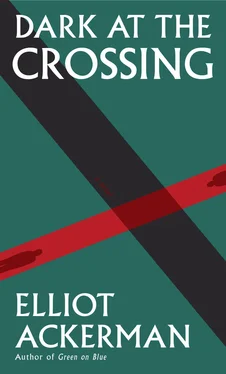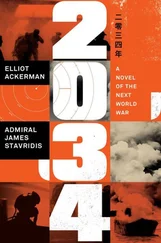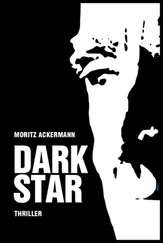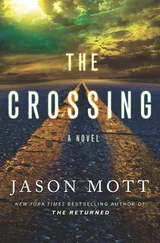When Haris climbed up from the culvert’s other end, he gasped in the morning air. The sky was clear. Framed against its blue, farmers fanned out in their fields, clearing the broken stalks of last season’s harvest. Traveling in the opposite direction, the partitioned farmland sloped upward. Haris rested often to relax and massage his cramped muscles. The Taser’s electricity had left him stooped.
Stumbling along the D850, Haris remembered how he’d come this way by taxi only three days before. Soon the curbs appeared along the roadside, painted yellow and white. Kilis was close. Haris didn’t know what he’d do once he got there. All he wanted was to cross the border. The humiliation of being robbed hadn’t deterred him. If anything it had hardened his resolve. Tucked in his shirt pocket, he still had his phone. If he could get in touch with Saladin1984 and explain what had happened, he felt certain some arrangement could be made.
To cross into a war should be difficult, he remembered thinking the night before. His downturned eyes followed his feet as he went. He also remembered what the gendarmes at the border had called him: a damn fool.
The Americans he had worked with in Iraq sometimes called him a damn fool, though they had preferred dumb shit. He’d been assigned to a Special Forces detachment then, Team 555, the Triple Nickel as they called themselves. Big beef-fed men with beards stained coppery brown around the lips from chewing tobacco. They spoke slushy, mispronounced Arabic. They went out on raids, only at night. And only the best, most trusted interpreters went out with them. Haris held a special status among the other interpreters: he was Iraqi in a war against Iraqis, and American in a war against Americans — he’d earned that citizenship a few years before. He even had a basic security clearance.
For those who collaborated with the Americans, citizenship seemed the only way to escape their imploding homeland. The other interpreters often asked Haris how he’d navigated the impossible bureaucracy. “Do you remember during the invasion,” he would explain, “those American soldiers who were captured in Nasiriya?” Typically, whomever Haris told this story to would reply: “Yes, Jessica Lynch!” beaming as they thought of the pretty American soldier, her face all delicate features and distress, her blond hair, her vulnerability. “No, not her,” Haris would interrupt. “I helped them find the other girl soldier, Shoshana Johnson.” Haris had never met anyone who’d heard of Shoshana Johnson. She was older than Jessica Lynch, not as pretty, a black woman with cornrows instead of blond hair.
By this time in his story, whomever he told it to would say very little. A question hung in their silence: Why would you, an Iraqi, risk your neck to help an American soldier? Nobody ever asked Haris this question, but he began to wonder himself. What they normally asked was “They gave you citizenship after that?” This usually ended his story because the next question was one he didn’t want to answer, and whomever he was talking to didn’t want to ask: Then what in God’s name are you still doing in Iraq, in Ramadi no less, the asshole of assholes? That was simple: he needed to earn enough money to resettle his sister in the States, and the best job he could get — the only job he could get — was as an interpreter in the war. So Haris Abadi became walking proof among the other interpreters that even if they gave true and faithful service to the United States, even if they achieved their dream of becoming citizens, chances were they’d land right back in Iraq — asshole of assholes.
After a few months on the job, Haris stopped talking about Shoshana Johnson. All of the interpreters knew his story. For the most part they avoided him.
The guys from Triple Nickel didn’t avoid him. They treated Haris like a mascot. These professional soldiers cursed him lovingly, appreciating his predicament. The six whom Haris worked with had, between them, fought in Somalia, Kosovo, Colombia, Afghanistan — one had even fought against the Marxist Sendero Luminoso in Peru. They all possessed an overdeveloped appreciation of irony, common among those who trade in violence.
A sergeant named Jim paid special attention to Haris, never missing a joke at his expense. Whenever Haris entered a room, Jim attached the speakers to his iPod, flipping on the Allman Brothers song “Jessica,” a seven-minute, thirty-two-second lyric-less guitar jam. “Sweet riff, huh, bud?” Jim would say. Haris would never answer. He’d go about his business, translating documents from Arabic to English or cleaning up around the team room. Sometimes Jim would quietly let the tune play, but often he’d tell Haris: “Everybody loves ‘Jessica.’ Too bad no one ever bothered to write a song called ‘Shoshana.’ ” Then Jim would laugh, often cracking up so hard he’d begin snorting through his flat, piggish nose.
Jim had no qualms about laughing at his own jokes. He also knew nobody liked to be the butt of a joke, so when he finished he’d throw his big hairy arm over Haris’s shoulder. “You doing all right, Abadi?” Haris would inevitably smile, feeling a bit uncomfortable with the physical contact — Jim looked like a retired circus strongman, his body a twisted knot of sagging, overused muscles, and in the heat he often went shirtless, reeking as bad as livestock. Standing so close to him, Haris couldn’t help but glance at Jim’s stomach, which was round, hard, and carpeted in a swirl of hair. Inked right on Jim’s belly was a tattooed sun, its rays curled and fiery. Jim’s navel was the center of the sun, the dark, stinking heart of the universe.
That was all more than five years ago.
As he walked along the D850, thinking of Jim’s stomach, a sharp pain stabbed at Haris’s own. The sensation came on fiercely. It rushed outward, toward his joints. They shuddered as if the Taser’s voltage had been reapplied. With all Haris had suffered in the last day, his mind struggled to recognize this familiar pain. Then suddenly he put a name to it: hunger.
Haris sat on the road’s shoulder.
Fear quickly overcame pain. He had no idea how he would find a meal.
—
Haris didn’t searchfor a tree’s shelter, or dig around for a newspaper to blanket himself. He made no effort for his own protection. He lay on his back at the roadside, not sleeping, not moving, traffic passing by. Recalling his emails with Saladin1984, Haris’s mind raced over their old exchanges, groping for the reason he’d decided to come fight, each purpose dissolving quickly, like a match struck to the wind.
…I am disappointed to hear it will be another two months, but I understand your responsibilities to your sister. Progress across the front has slowed. What will change the balance are more men. All our pain is in the time we wait. We’re like your friend Jim. If he’d died quickly, his end would not be so difficult to remember. I’ve seen many who’ve died quickly. They feel nothing, knowing nothing of their end. Time is what allows pain. Time is the greatest enemy…
For the rest of the day, Haris lay on the highway’s shoulder, his body spent. Eventually he slept, waking late in the night. He was cold in the darkness, and he stared at the branching constellations — Orion, Andromeda — their great movements appearing still. Among the stars, a light hung in low orbit. It flickered with unnatural brightness, clouding the southern sky. It seemed to be a planet, but Haris couldn’t say which.
Then the light moved.
Suddenly it blinked out, disappearing.
Haris stood on unsteady legs, looking for the planet. He hoped to find it again in the darkness. Searching the sky across the border, he saw nothing. He lowered himself to the ground. With his head on the earth, he found the constellations he knew, picking out the stars in their patterns. He hoped this would help him sleep.
Читать дальше












